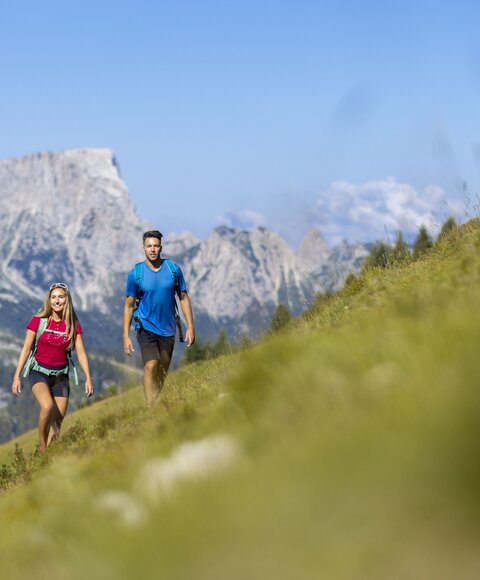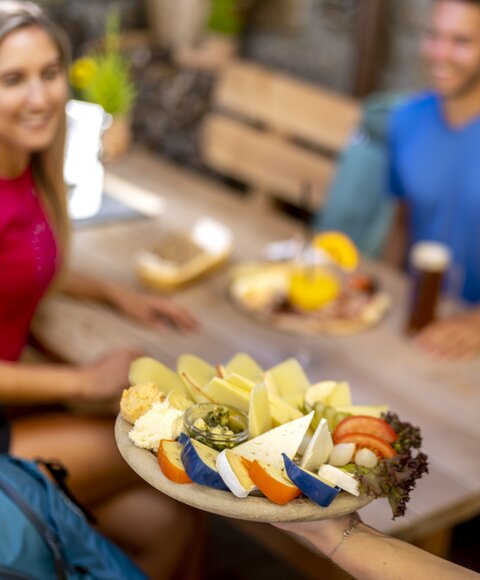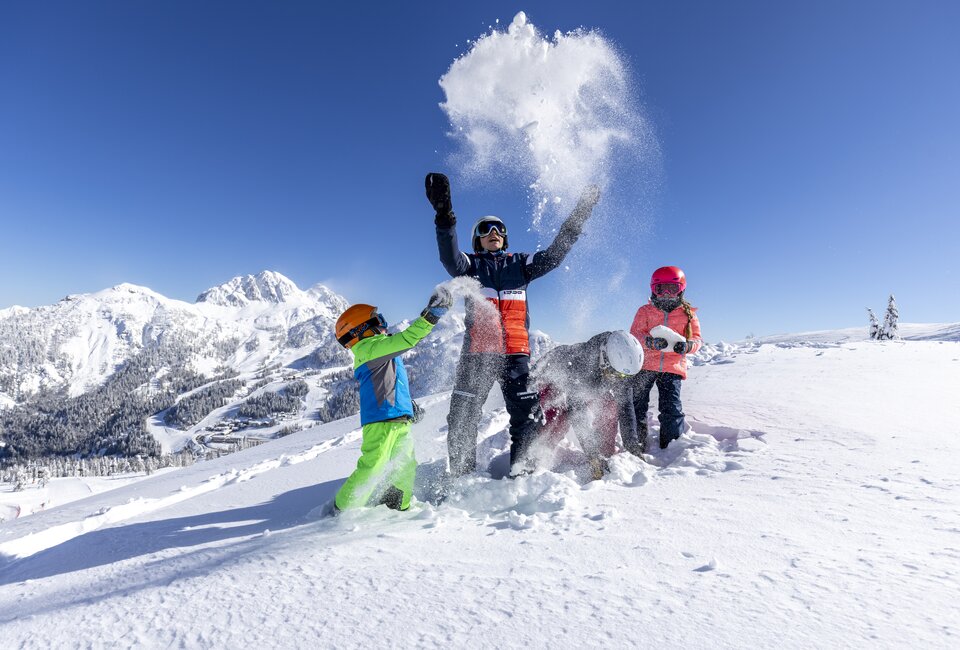Mountaineering villages
Mountaineering villages are original mountain places that today invite visitors to enjoy and stay a while. The villages that have come together under the umbrella of the "Mountaineering Villages Initiative" still maintain awareness of the harmonious relationship between man and nature, and show respect for natural boundaries. Thus, mountains and mountaineering enjoy a high priority in the cultural self-image of the locals and visitors. Our region is home to two such places that fulfil the criteria of mountaineering villages, and they have been awarded for their exemplary regional development in sustainable alpine tourism as well as their traditional character. The mountaineering villages of Mauthen and Lesachtal are waiting to be explored.
Mauthen
Surrounded by the Gailtal Valley Alps to the north and the Carnic Alps in the south lies the mountaineering village of Mauthen, which can look back on a long history and tradition in alpinism. The diverse landscape with its impressive mountains, unique flora and fauna, clear mountain lakes, impressive waterfalls and amazing gorges has made the village an ideal starting point for unforgettable mountain experiences for decades.
Mauthen is situated halfway down the Carnic High Route 403, a long-distance hiking trail that runs along the state border from Sillian to Thörl-Maglern. The route passes nine refuges and is altogether 155 km long. On the opposite side, with a total length of about 90 km, runs the Gailtal Valley High Route.
The Carnic Alps are one of the most fascinating regions when it comes to the history of the earth, and various "GEO trails" offer interesting knowledge on this subject. The two flower mountains Mussen and Mauthenr Alm, which are home to a great variety of flowers, are a paradise for botanists and anyone who is interested in plants.
The cruel mountain war of 1915/17 has left traces in the Carnic Alps that are visible to this day. The Plöcken Museum in the town hall of Kötschach-Mauthen and the open-air museum on the Kleiner Pal, near the Plöcken Pass, exhibit numerous documents from this period.
The mountaineering village of Mauthen delights with its culinary treats, a diverse local programme, and its ties of friendship to its Italian neighbours.
Here you can find suitable accommodation for your time in the mountaineering village of Mauthen!
Lesachtal
The Lesachtal Valley, with its four main villages of Birnbaum, Liesing, St. Lorenzen and Maria Luggau, is also known as Europe’s most natural valley. The winding road that runs high above the River Gail conveys an impression of the region's challenging topography. Numerous trenches run through the Lesachtal Valley and must be crossed or overcome with the help of impressive bridges.
The village of Birnbaum is the ideal starting point for tours to the Mooskofel Mountains around the idyllic Lake Volaya or to the Mussen flower mountain. Starting from Liesing, ambitious mountaineers have the opportunity to cross the mighty Steinwand. The tour leading the Hochweißstein Mountains through the Frohntal valley, which is interesting for mountain-experienced hikers, but also offers numerous climbing routes, starts in St. Lorenzen. The pilgrimage destination of Maria Luggau, with its magnificent baroque church and its pilgrimage walks, is known far beyond the borders of the valley.
Apart from numerous mountaineering highlights, the Lesachtal Valley awaits also with a wealth of culinary delights and cultural-historical treasures. The remoteness of the valley has undoubtedly contributed to the charming preservation of the regional building culture. Well-maintained farmhouses, paintings on window frames and building corners as well as lovingly preserved wayside shrines are a sign of the continued appreciation of a tradition that has long been lost elsewhere.
Here you can find suitable accommodation for your time in the mountaineering village of Lesachtal!


























